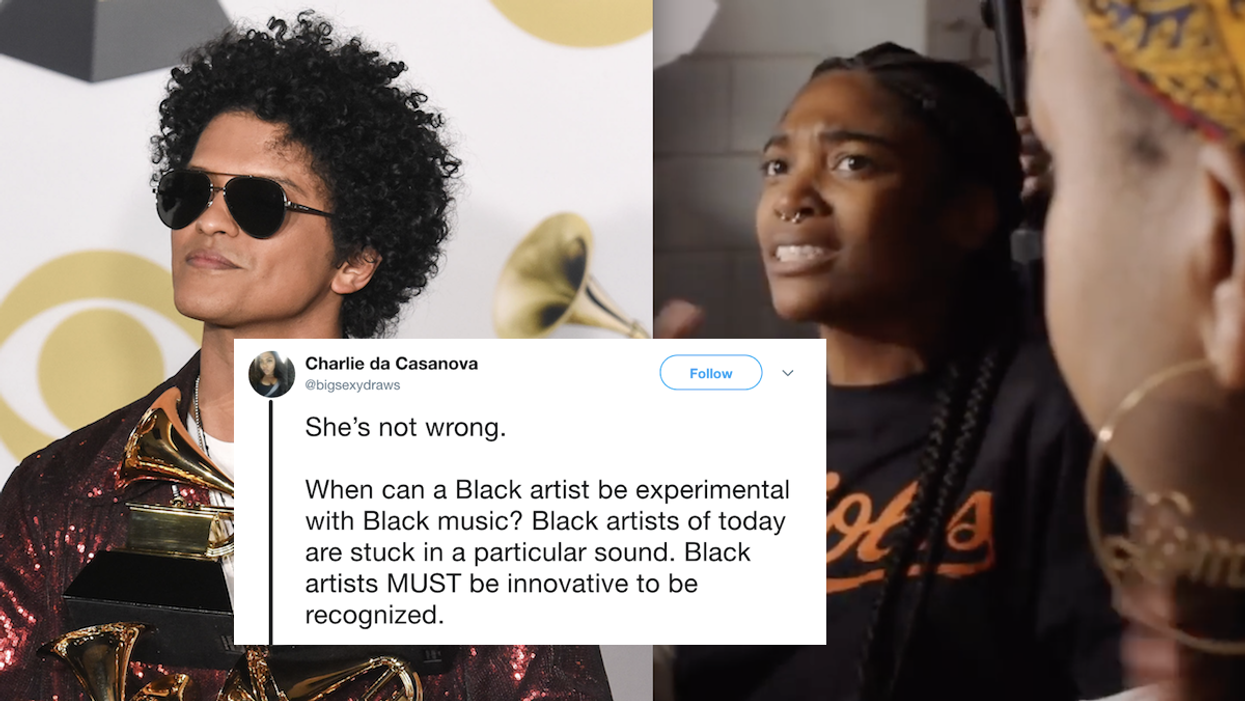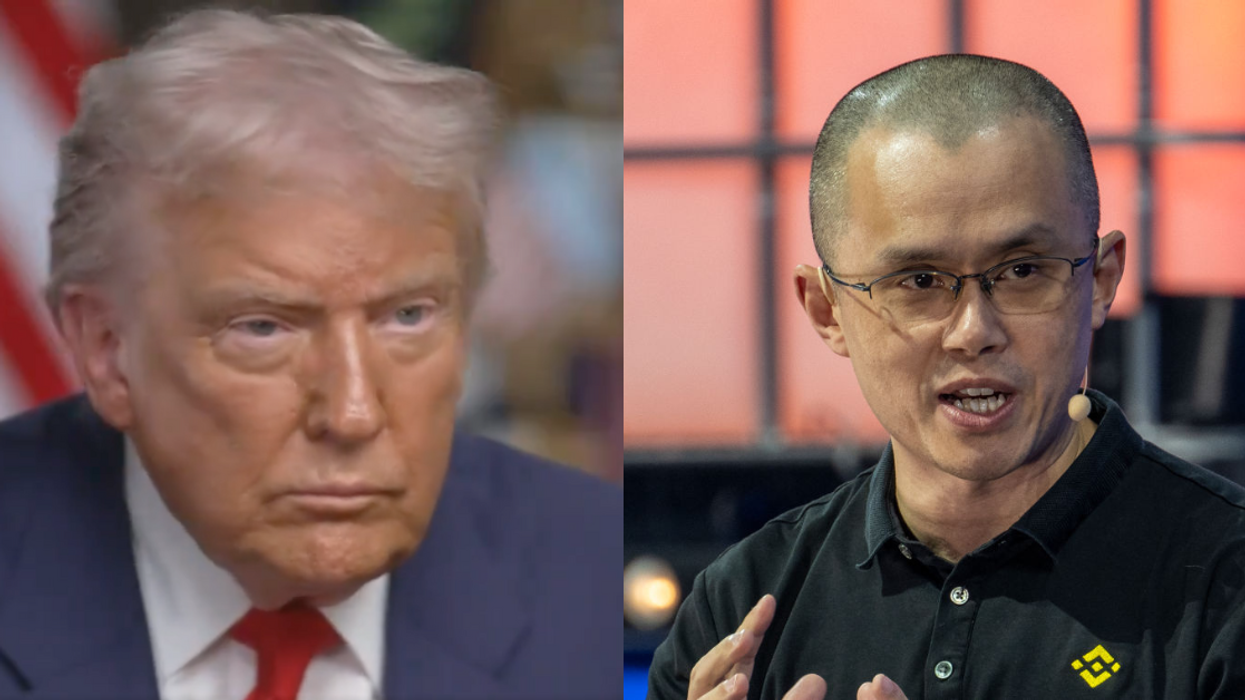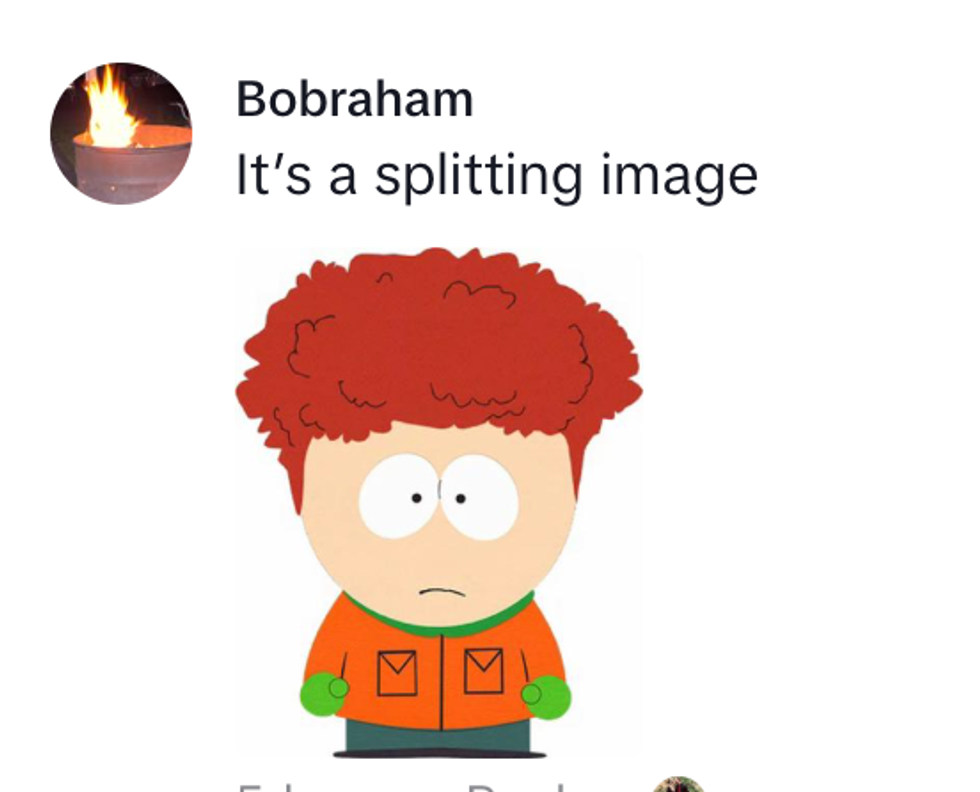Grammy Award-winning artist Bruno Mars was accused of stealing black music by cultural critic Seren Sensei.
The "Finesse" singer is often mistaken for an African American because of his music characterized by funk, R&B, soul, reggae, and hip-hop. But Mars is not black. The 32-year-old is multicultural. His mother is Filipino and his father is half Puerto Rican and half Ashkenazi Jewish.
Sensei, a 30-year-old writer, activist, spoke on "The Grapevine" – a channel that features panel discussion on topics surrounding African American issues – about Mars' appropriation of black culture.
"Bruno Mars 100 percent is a cultural appropriator," Sensei said on the web-series. "He is not black, at all, and he plays up his racial ambiguity to cross genres."
She referenced Michael Jackson, saying that in this day and age, he would not have achieved the status as an established artist because people now "prefer their black music and their black culture from a non-black face."
"We have artists now who are much more willing to step into "black genres" that were not willing to do it," Sensei commented and said it was a "false equivalency" for Michael Jackson to be compared to Bruno Mars because the former had to campaign for his music to be heard back then.
I also want to say that Bruno Mars is not an original artist in the way that Michael Jackson was an original artist, and the same way that Prince was an original artist.
What Bruno Mars does, is he takes pre-existing work and he just completely, word-for-word recreates it, extrapolates it. He does not change it. He does not improve upon it. He's a karaoke singer. He's a wedding singer.
Shaun King genuinely wanted to know how white musicians should approach their music.
"Bruno Mars has an album of the year Grammy and Prince never won an album of the year Grammy," Sensi noted. "The issue is we want our black culture from non-black bodies."
She argued that Mars got the Grammy because "white people love him because he's not black."
There were some mixed responses to her impassioned debate. One Twitter user pointed out that Mars isn't necessarily guilty of cultural appropriation in the way he's being targeted for it. "Some valid points were raised but others could be explained a bit more," said @Jestereye7x.
"Cultural Appropriation is complex and far more nuanced than doing styles of music. Bruno doesn't dismiss the culture - in fact he gives credit to origin. He's not claiming he invented or revolutionized it."
People came to the singer's defense.
Gene Demby of NPR's Code Switch didn't agree with Sensei's point of view.
He was praised further for his continuing contribution to music.
Mars always credits those he's inspired by.
The evolving industry affecting the perception of black music could be partial to blame.
Sensei is proud of the dialogue she started surrounding the viral video. "It's important to have the conversation outside of the usual dichotomies of Black/White racism because non-Black persons of color can also practice anti-Black racism," Sensei wrote. "We need to address what that means."
















 @vanessa_p_44/TikTok
@vanessa_p_44/TikTok @vanessa_p_44/TikTok
@vanessa_p_44/TikTok @vanessa_p_44/TikTok
@vanessa_p_44/TikTok @vanessa_p_44/TikTok
@vanessa_p_44/TikTok @vanessa_p_44/TikTok
@vanessa_p_44/TikTok





 @GovPressOffice/X
@GovPressOffice/X @GovPressOffice/X
@GovPressOffice/X @GovPressOffice/X
@GovPressOffice/X @GovPressOffice/X
@GovPressOffice/X